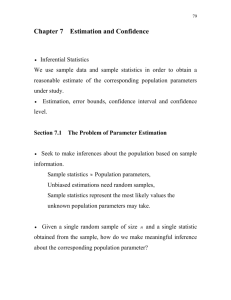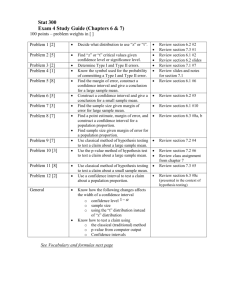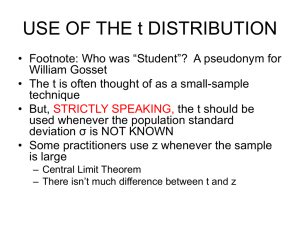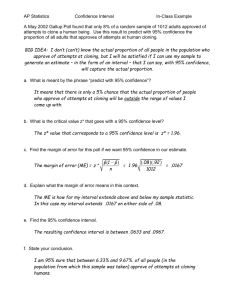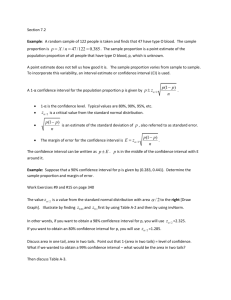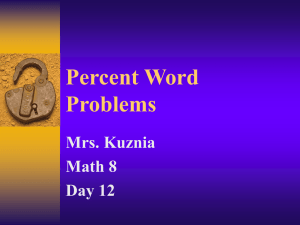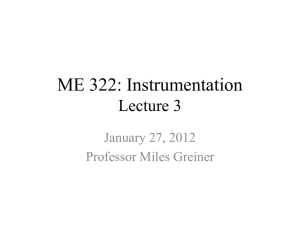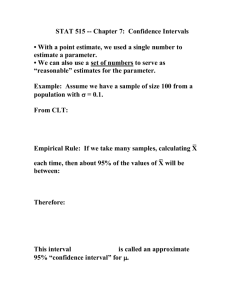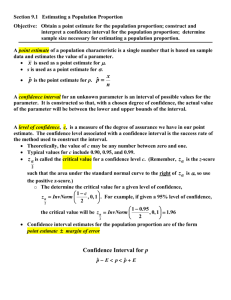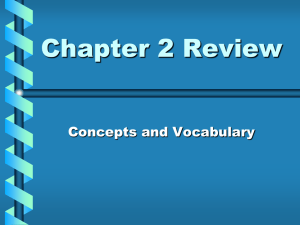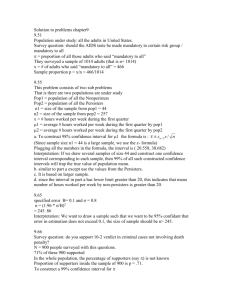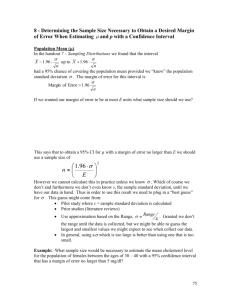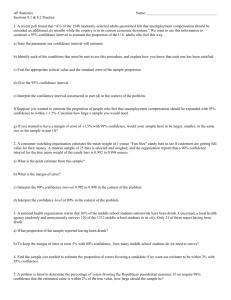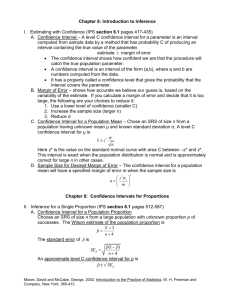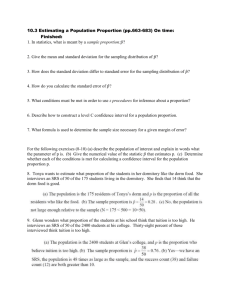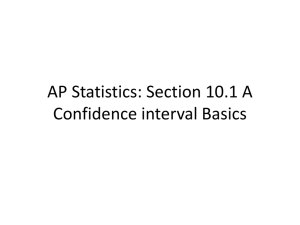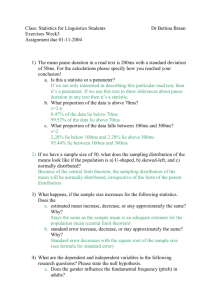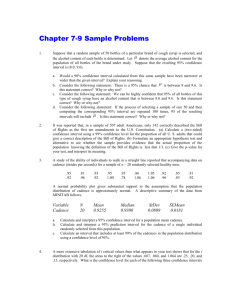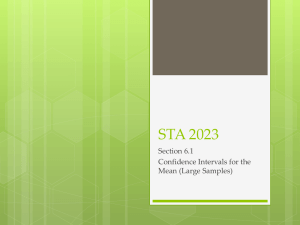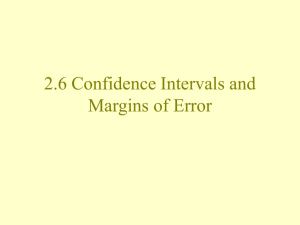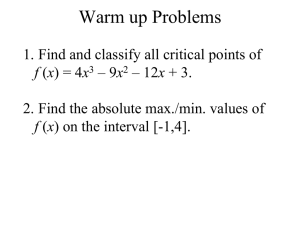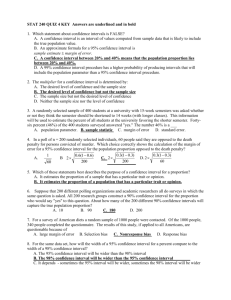A survey found 195 of 250 randomly selected Internet users have
advertisement
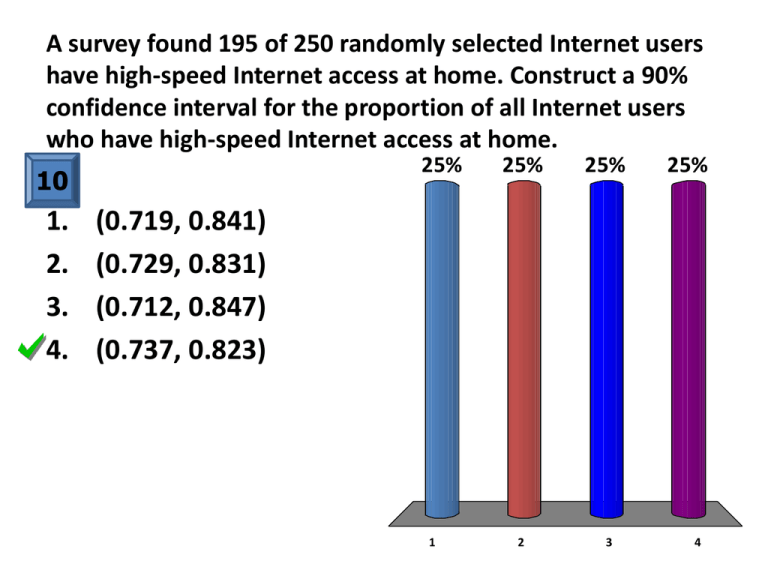
A survey found 195 of 250 randomly selected Internet users have high-speed Internet access at home. Construct a 90% confidence interval for the proportion of all Internet users who have high-speed Internet access at home. 25% 10 1. 2. 3. 4. 25% 25% 2 3 25% (0.719, 0.841) (0.729, 0.831) (0.712, 0.847) (0.737, 0.823) 1 4 The higher the level of confidence we want, the narrower our confidence interval becomes. 50% 50% 10 1. True 2. False 1 2 We have calculated a 95% confidence interval for p and pq z would prefer to have a smaller margin of error n without losing any confidence. In order to do this, we can 25% 25% 25% 25% I. change the z∗ value to a smaller number. II. take a larger sample. III. take a smaller sample. * 10 1. 2. 3. 4. I only II only III only I and II 1 2 3 4 We have calculated a confidence interval based on a sample of size n = 100. Now we want to get a better estimate with a margin of error z p n q that is only onefourth as large. How large does20% our new need20% 20% sample 20% 20% to be? * 10 1. 2. 3. 4. 5. 25 50 200 400 1600 1 2 3 4 5 A news poll which estimated that 82% of all voters believe global warming exists had a margin of error of +/- 3%. Suppose an environmental group planning a follow-up survey on this issue wants determine 25% to 25% 25% a25% 95% confidence interval with a margin of error of no more than 2%. How large a sample do they need? (For estimate of p use 0.82) 10 1. 2. 3. 4. 32 1418 999 38 1 2 3 4 At Dartmouth College students can buy an 18 meals/week food plan or a 14 meals/week food plan. A campus organization 10 calculated a 95% confidence interval for p, the proportion of students with a 14 meals/week plan, as (0.58, 0.66). Choose the 25% interval. 25% 25% 25% correct interpretation of this confidence 1. We are 95% confident that the true proportion p of students with a 14 meals/week plan is between 0.58 and 0.66. 2. In 95% of all random samples of Dartmouth students, the sample proportion p of students with a 14 meals/week plan is between 0.58 and 0.66. 3. We are 95% confident that the interval (0.58, 0.66) has captured the true proportion p of students with a 14 meals/week plan. 4. In 95% of all random samples of Dartmouth students, the sample proportion p of students with a 14 meals/week plan 1 2 3 4 will be 0.62.
